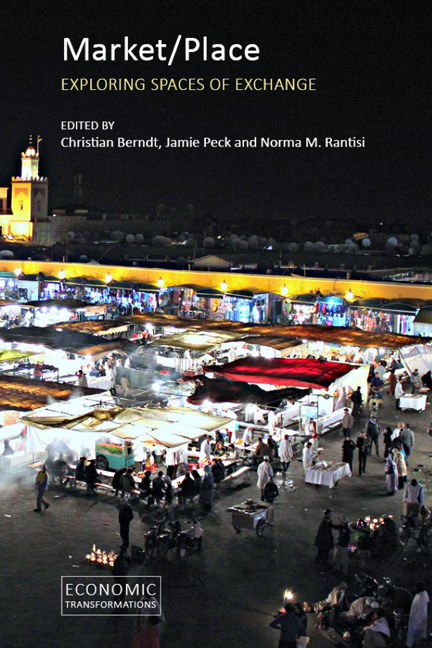5 - Persistent problems in the Polanyian critique of the market
Published online by Cambridge University Press: 23 December 2023
Summary
Many of us have been drawn to the work of Karl Polanyi precisely because he calls into question the state versus market binary that has structured a great deal of Anglo-American thought for centuries. He challenges the social contract fairy tale in which our distant ancestors constructed a rudimentary social contract that allowed them to engage in productive trade with each other long before the existence of political authority or formalized states. Polanyi insists instead that the creation of a market economy required the continuous use of state authority and coercive force.
But, although Polanyi breaks apart this binary, there are still moments in his argument when he explicitly or implicitly relies on the idea that economy and society are separate and somewhat autonomous realms. The most familiar example occurs when Polanyi invokes the idea of “impairment” to describe the consequences of protectionist measures that were adopted by various governments in the last third of the nineteenth century. He suggests that these protective measures undermined the working of the world market, leading to worse economic outcomes. But, since Polanyi had earlier suggested that these markets could not work at all without regulatory measures, it certainly appears contradictory to argue that regulatory measures were both necessary and disruptive to the effective functioning of markets.
A parallel problem is created by Polanyi's discussion of the project of disembedding the economy in the nineteenth century. This is closely linked to his insistence that land, labour and money are fictitious commodities because they are not produced for sale on the market. Nevertheless, the project of market liberalism relies on pretending that the market works to bring the supply and demand of fictitious commodities into balance as it does for other commodities. Polanyi scholars have struggled over the question of whether disembedding the economy from society actually happens or whether it is an ideological claim that market liberals make. Similarly, analysts disagree over the meaning of fictitious commodification. Do land, labour and money become commodities or is this also a project that never realizes its goal?
- Type
- Chapter
- Information
- Market/PlaceExploring Spaces of Exchange, pp. 89 - 102Publisher: Agenda PublishingPrint publication year: 2020

